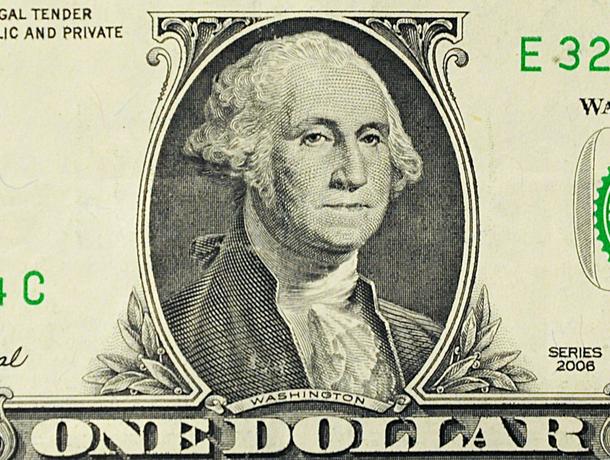
The dollar is up sharply against other currencies as the Federal Reserve presses ahead with sharp interest rate hikes to fight inflation
Hong Kong (AFP) - The dollar extended gains Friday on expectations the Federal Reserve will press ahead with its programme of bumper interest rate hikes for the rest of the year.
Traders were girding for another possible intervention by Tokyo after the yen sank past 150 per dollar, while sterling remained under pressure owing to uncertainty in Westminster after Prime Minister Liz Truss resigned after just six weeks in office.
The fear that has gripped markets for most of the year returned after a brief respite at the start of the week, sending equity markets back into the red, with a series of better-than-expected earnings results unable to lift the gloom.
The dollar burst to a new 32-year high against the yen on Thursday as investors bet the Fed will ramp up borrowing costs much more as it struggles to rein in prices, while the Bank of Japan refuses to budge from its ultra-loose policies citing the need to support the torpid economy.
Even data Friday showing Japanese inflation hit an eight-year high last month – or more than 30 years when excluding VAT rises – was unable to change expectations that the central bank will continue to hold firm.
In a sign of growing rate hike expectations, US 10-year Treasury yields rose to their highest level since the financial crisis in 2008, which in turn hit equities.
“In October, inflation may reach 3.3 percent or 3.4 percent as many food prices are going up, mobile phone fees are giving a lift and service prices are rising,” said Mari Iwashita of Daiwa Securities Co.
“The BoJ seems to focus on downside risks overseas to conclude that it will need to keep up monetary easing. It strikes me that they have already made the decision to maintain easing.”
With the dollar sitting below 150.50 yen, there is a growing sense that authorities in Tokyo will step in to support their currency, though analysts warned that such moves rarely have a lasting effect. The last intervention was on September 22, when the dollar hit 145.90 yen.
- ‘Unmitigated disaster’ -
Finance Minister Shunichi Suzuki again said on Friday that the government was prepared to move and that the recent sudden, one-sided yen weakness was undesirable.
But Hiroyuki Machida, at ANZ in Tokyo, said: “If moves reflect the rise in US yields on rate hike prospects and the pace is slow, it makes it difficult for Japan to intervene and the dollar-yen looks set to slowly grind higher toward 155.
“But the slow pace of the pair’s climb after touching 150 shows market players are wary of intervention and are cautiously treading water.”
The dollar was also elevated against sterling after a day after Truss resigned, having removed her finance and interior ministers within days and seeing her debt-fuelled, tax-cutting mini-budget torn up.
The pound initially rallied on the news Thursday but fell back as traders contemplated more government drift, and it remained weighed down on Friday.
“Truss has no doubt been an unmitigated disaster and I’m not sure who exactly will make the country feel at ease at this point,” said OANDA’s Craig Erlam.
“There will obviously be calls for a general election but that won’t provide any certainty or leadership for the country in the midst of a crisis. It would appear there are only bad options on the table so we probably shouldn’t expect a positive outcome.”
Equity markets fell again, extending Thursday’s losses and tracking another sell-off on Wall Street as expectations for more rate hikes by central banks around the world continue to grow owing to stubbornly high inflation.
Observers say the Fed could lift rates to as high as five percent before they take their foot off the pedal, and even then keep them there until officials are happy that prices are under control. They are currently at 3.0-3.25 percent.
Asia equity markets were mostly lower, with concerns about fresh lockdowns adding to the unease, after President Xi Jinping reiterated his commitment to the zero-Covid strategy.
Tokyo, Hong Kong, Sydney, Seoul, Singapore, Wellington, Taipei and Manila were all in the red, though Shanghai, Bangkok, Mumbai and Jakarta edged up.
London, Paris and Frankfurt were all down.
- Key figures around 0810 GMT -
Tokyo - Nikkei 225: DOWN 0.4 percent at 26,890.58 (close)
Hong Kong - Hang Seng Index: DOWN 0.4 percent at 16,211.12 (close)
Shanghai - Composite: UP 0.1 percent at 3,038.93 (close)
London - FTSE 100: DOWN 0.3 percent at 6,923.67
Pound/dollar: DOWN at $1.1183 from $1.1224 on Thursday
Dollar/yen: UP at 150.48 yen from 150.19 yen
Euro/dollar: DOWN at $0.9785 from $0.9787
Euro/pound: UP at 87.36 pence from 87.17 pence
West Texas Intermediate: DOWN 0.2 percent at $84.32 per barrel
Brent North Sea crude: DOWN 0.2 percent at $92.17 per barrel
New York - Dow: DOWN 0.3 percent at 30,333.59 (close)
– Bloomberg News contributed to this story –